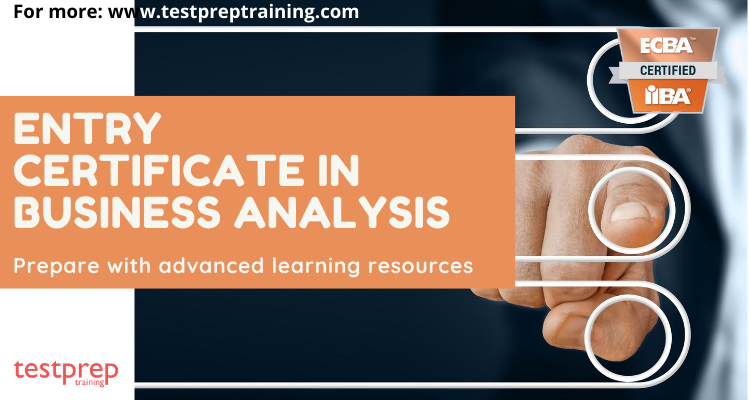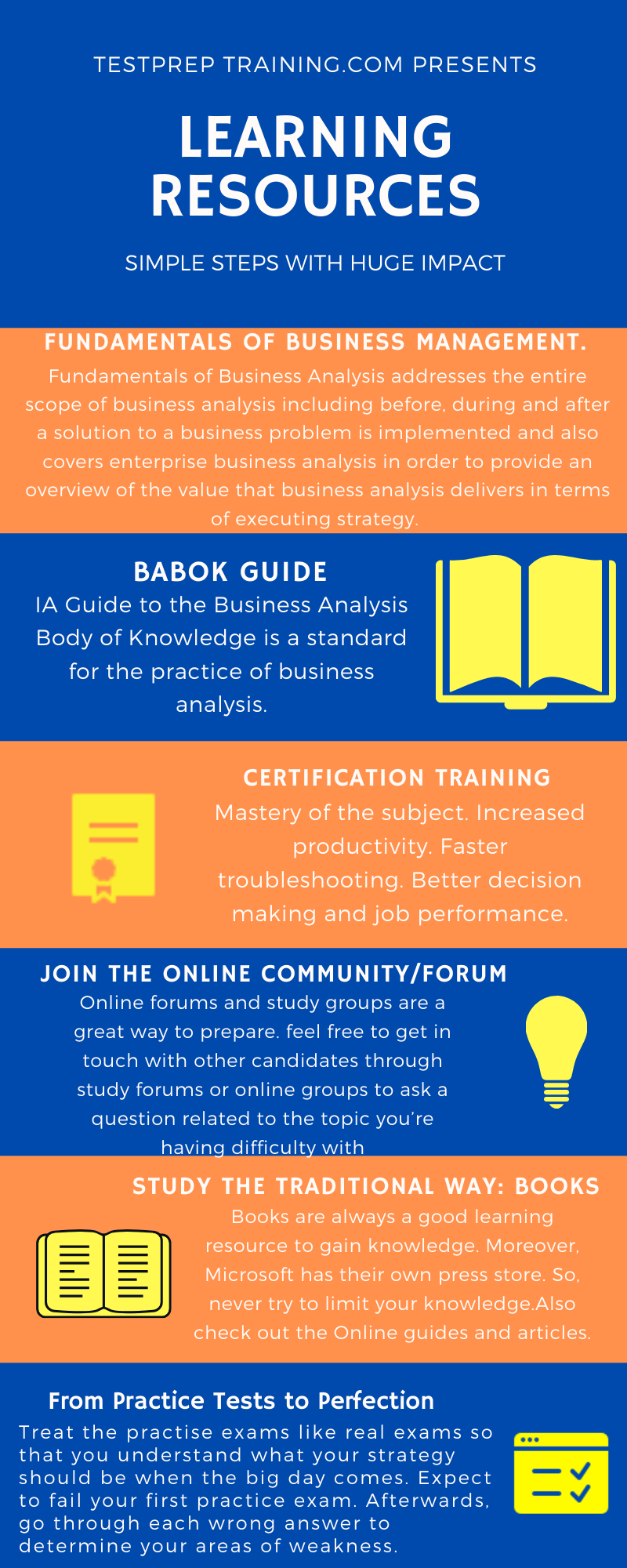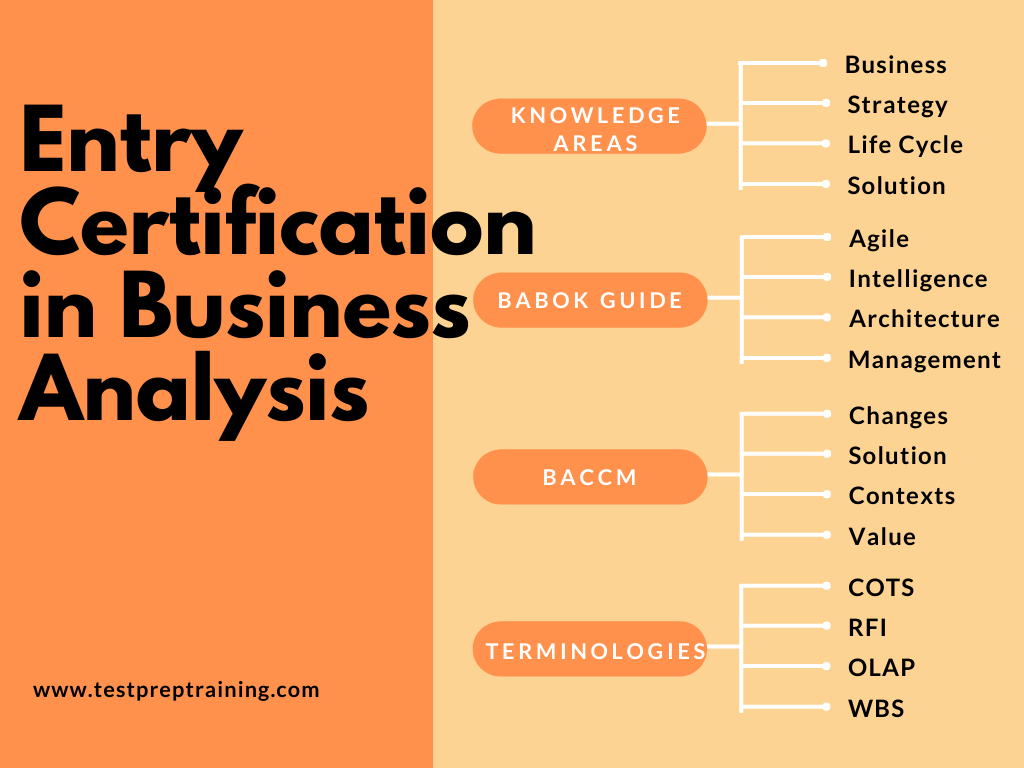

The ECBA certification is an entry-level certification, making it a great choice for those who are just starting their career in business analysis. The certification exam covers topics such as business analysis planning and monitoring, elicitation and collaboration, requirements life cycle management, strategy analysis, and solution evaluation. If you’re interested in pursuing a career in business analysis or are already working in the field and looking to improve your knowledge and skills, the ECBA certification can be an excellent option to consider. The International Institute of Business Analysis (IIBA) gives you this certification. It shows that you understand the basics of business analysis really well.
In this blog, we’ll give you a complete guide on getting ready for the ECBA certification exam. We’ll talk about the exam format, what it covers, and give you tips and resources to study effectively. By the end of this blog, you will have a clear understanding of what you need to do to successfully pass the ECBA certification exam and take the next step in your business analysis career. So, let’s get started!
Here are some official resources for the Entry Certificate in Business Analysis (ECBA) Exam:
The ECBA exam is meant for people who are really good at thinking analytically and coming up with ideas. If you want this business analysis certification, you should be good at planning and managing your time. It’s also a good idea to have experience leading teams and making successful projects happen.
If you wish to view all the exam details in depth, you can visit the ECBA Exam Online learning Tutorial here!

In this study guide, we’re going to provide you with each and every learning resource that is important for the ECBA exam preparation. So, buckle up and get ready to qualify for the ECBA exam with the learning resources mentioned here!

The most important step while you prepare yourself for the exam is to be friends with the exam. You need to make yourself as much as familiar with the exam and its related concepts. For instance, if you are new to the world of business analysis, then our suggestion would first comprehend and get yourself familiar with the concepts relating to business analysis. This will help you in understanding business analysis in a much better and clear way. Since you can’t be vague with your basics, you really need to complete the basic principles and then move on to other major areas.

In addition, you can make a visit and explore the content given in the BABOK guide before you hop onto other reliable sources. The ECBA exam doesn’t revolve around so many things, rather it has a much-focused content which only BABOK guide can take you through. You need to go through the BABOK guide and then explore and focus on other areas in a rigorous manner. Once you are all set with the BABOK guide, further you can explore the ECBA exam objectives to collect an in-depth understanding of the exam objectives as they are of supreme importance for your exam.
Subsequently, if somehow or the other, BABOK guide fails to or doesn’t contribute much to your preparation process, then you need to and you should go for ECBA certification training without any second thought to help you prepare for the exam. Preparation for the exam is not fruitful and can leave you in vain until you are not fully exposed to its basic fundamentals. Therefore, we highly suggest you join the ECBA certification training in or near your residence location. The reason being, you don’t feel strenuous while going and coming back. Also, you have the mental strength with you to help you focus on your exam preparation.

The ECBA exam blueprint covers the following knowledge areas:
Perspectives are utilised within business analysis work to present focus to tasks and techniques. These are specific to the context of the initiative and may involve one or more perspectives.
The 5 perspectives incorporated in the BABOK Guide design the majority of the work BAs do:
The Business Analysis Core Concept Model (BACCM) is a conceptual core for business analysis. It comprises of what business analysis is and what it means. Also, its perspective, for those performing business analysis tasks regardless of try, methodology, or level in the organization. It is constituted of six terms that have a common meaning to all business analysts. Further, this assists them to discuss both business analysis and its relationships with common terminology. Each of these terms is acknowledged to be a core concept. So, here we go-
When preparing for certification exams like ECBA, joining an online forum can become your easy way out. Not only will these help you prepare but also let you understand the concept you’re having trouble with. Study groups will ensure that there is huge community of people like who are going through the same journey as yours.
Finally, practicing with mock tests can be a valuable tool to prepare for the exam. ECBA practice exams or mock tests are similar to the real exam. Their main purpose is to simulate the actual exam environment. Using practice tests helps you identify your strengths and weaknesses. They show you where you need improvement and help build your confidence. It’s essential to take practice tests after studying the entire syllabus for better evaluation and confidence building. Ready to evaluate yourself, try ECBA practice exam free test here!
Elevate your career with all new learning resources. Start preparing for Entry Certificate in Business Analysis Exam Now!